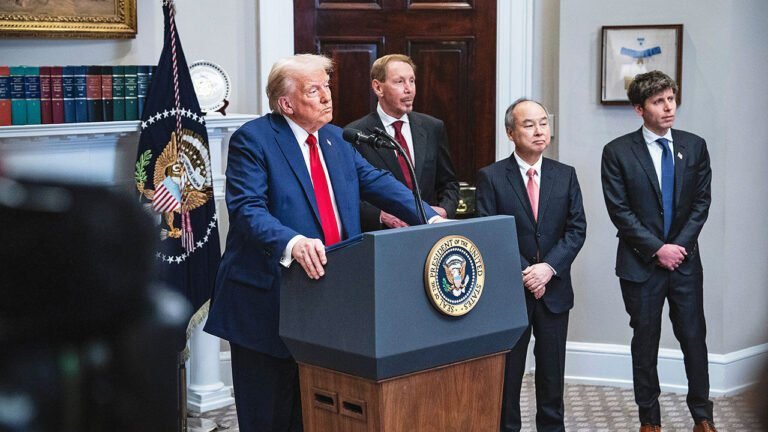Introduction
In a bold statement that underscores the ongoing tensions surrounding immigration policies and education, Worcester Public Schools Superintendent Rachel H. Monarrez made it clear: “We will not admit ICE agents into schools based on an administrative warrant, an ICE detainer, or any other document related to civil immigration enforcement.” This declaration comes amid a rapidly shifting political landscape where public schools, often seen as safe havens for children, are now at the center of a contentious battle over immigration enforcement. The implications of this policy extend beyond the classroom, sparking heated discussions about students’ rights, safety, and access to education.
The Commitment to Safe Education
Monarrez further emphasized the district’s commitment to inclusivity, stating, “A free, public education is a cornerstone of our democracy,” and declared that Worcester Public Schools (WPS) is dedicated to educating all children, regardless of their background. This includes a steadfast commitment to protecting the rights and well-being of every student, irrespective of their immigration status.
- Inclusive Education: WPS aims to create an environment that supports all students, echoing the values of equality and safety.
- Guidance for School Staff: To further fortify this commitment, principals and school staff have received detailed guidance on protecting students’ rights and appropriately responding to any potential ICE interactions.
The Statistics Behind the Policy
Worcester Public Schools, the second-largest district in Massachusetts, serves over 24,530 students, with a significant Hispanic demographic making up 46% of the student body. This demographic diversity plays a crucial role in shaping the district’s policies, as they navigate both educational and social responsibilities effectively.
Enrollment Breakdown
| Ethnic Group | Percentage of Enrollment |
|---|---|
| Hispanic | 46% |
| African American | 20% |
| White | 25% |
| Asian | 9% |
The Policy Shift Under Trump
The recent announcement from the Trump administration has dramatically shifted the landscape of immigration enforcement. A directive echoing the administration’s hardline stance now allows Immigration and Customs Enforcement (ICE) agents to operate in traditionally sensitive environments such as schools and churches.
Implications of the New Policy
Advocates and immigration lawyers have voiced their concerns over the potential repercussions this policy may have on children and families:
- Fear and Distrust: The presence of law enforcement in educational settings may instill fear among immigrant families, inhibiting them from accessing vital services.
- Educational Impact: Such policies may disrupt educational experiences, preventing children from participating fully in their schooling due to anxiety about possible deportation.
Legal Backing for Students’ Rights
Organizations like Lawyers for Civil Rights stand ready to counteract these measures, emphasizing the need for a child’s right to public education. Executive Director Iván Espinoza-Madrigal reiterated, “Immigration enforcement in schools would compromise safety and have devastating consequences.”
How Schools Are Responding
- Training for Staff: Schools have taken proactive steps by providing training for staff on how to respond to ICE encounters, ensuring that students feel safe and supported.
- Protecting Student Records: It’s crucial to note that WPS will not inquire about immigration status and will only share student records with ICE under specific, rare circumstances such as parental consent or a court order.
The Bigger Picture: What’s at Stake
As the conversation around immigration enforcement escalates, the consequences for students and families become increasingly clear. If ICE operates freely within educational settings, the very sanctity of schools as safe havens is threatened. This can result in:
- Emotional and Mental Distress: The threat of family separation or witness to a parent’s detention can lead to significant emotional trauma in children.
- Reduced Participation: Fear of deportation may also deter students from attending school, engaging in school activities, and pursuing a quality education.
The Community Response
While the WPS district stands firm in its policies, responses from local communities and stakeholders play a critical role in advocating for students’ rights and safety.
- Legal Advocacy: Local immigration attorneys are preparing to challenge any instances where students’ rights are violated, promoting a collaborative approach to supporting immigrant families.
- Community Outreach: Engaging with the community to raise awareness about rights and resources is vital for empowering immigrant families during these tumultuous times.
Conclusion
The ongoing battle over ICE’s presence in schools touches the very heart of what it means to provide a safe and equitable education for all children. As Worcester Public Schools continues to uphold its commitment to inclusivity and student safety, the repercussions of federal immigration policy remain profound.
Call to Action: It’s crucial for communities and parents to stay informed and engaged. Open discussions about these policies aren’t just necessary—they’re vital. Let’s continue advocating for a safe educational environment where every child can thrive, regardless of their background. Share your thoughts and experiences, and join the conversation about ensuring that our schools remain safe havens for all students.
















